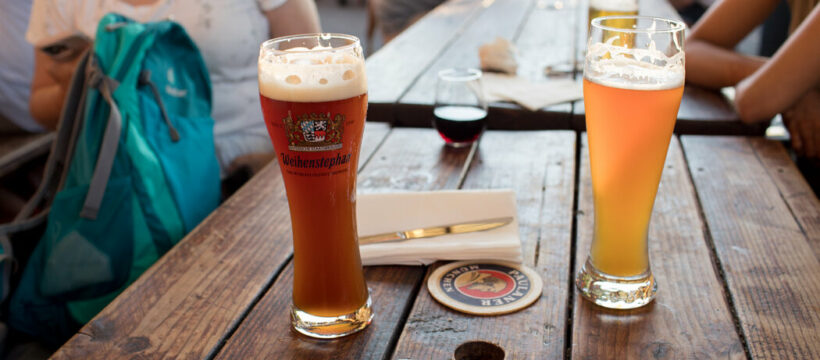A poolside margarita, a frosty beer at a Memorial Day barbecue — summer, you could argue, is made for a cold drink on a hot day.
But why does a daytime buzz feel different from after-dinner drinks? And is there any way to ward off the evening hangover?
Perhaps unsurprisingly, there have not been robust clinical trials evaluating the health effects of day drinking. But psychiatrists and alcohol experts said there are a few unique factors that influence how daytime drinking can differ from nighttime consumption.
It’s open-ended.
At night, you might be more attuned to the signs it’s time to stop — after your dinner winds down, for example. But the novelty of an afternoon alcoholic beverage means people don’t always keep tabs on how much they’re consuming, said Dr. Akhil Anand, a psychiatrist at the Cleveland Clinic.
If you’re drinking throughout the day, and not necessarily keeping tabs on where to get your next snack, it also stands to reason that you wouldn’t have food in your stomach to help slow down the rate at which your body absorbs alcohol — which means you’re likely to get more intoxicated over a shorter period of time.
It’s hot.
Drinking while the sun is out — particularly in the summer — makes you more likely to become dehydrated, and dehydration can intensify the effects of intoxication: You may feel fatigued, lightheaded, woozy or just generally out of it, said Dr. Sarah Andrews, an assistant professor of psychiatry and behavioral sciences at Johns Hopkins Medicine. On a sweaty day, you can lose more fluids than you’re able to replenish, which means you also lose sodium and minerals that help your body function normally. And that’s on top of the dehydrating nature of alcohol itself, which acts as a diuretic and pushes fluids out of your system by making you urinate more frequently.
The hangover might arrive earlier.
The earlier the drinking starts, the sooner that dry-mouthed, headachy hangover feeling comes on. A mimosa brunch could translate into a dinnertime hangover, said Dr. Danesh Alam, an addiction psychiatrist at Northwestern Medicine, though it’s more likely that a hangover will start early the following morning — whenever your blood alcohol content has dipped back down to zero. Because day drinking can be so dehydrating, hangover symptoms are likely to be worse, Dr. Anand said. The best ways to stave off a hangover are to drink at least one glass of water per alcoholic drink, ensure you’re eating enough, avoid sugary drinks and, of course, limit the amount of alcohol you’re drinking overall — no matter what time you start.
“Hang-xiety” can hit harder.
Dehydration also accentuates the physiological effects that can come with a hangover — shaky hands, nausea, dizziness. Sometimes, bodily signs of anxiety caused by drinking can trigger actual feelings of fear and nervousness, also known as “hang-xiety.” In the hours or days after day drinking, when you are more likely to be extra dehydrated, the anxiety might be particularly pronounced, said Thea Gallagher, a clinical psychologist at N.Y.U. Langone Health.
But will you get good sleep later? That’s anyone’s guess.
A few glasses of wine before bed is a recipe for a bad night’s sleep because of the way alcohol compromises your REM sleep and sends you trudging to the bathroom. Drinking during the day can also wreak havoc on your sleep-wake cycle, said Dr. Alam. You might sink into a nap, which can make it harder to fall asleep later. Or you could end up powering through the day and then suffering the typical nighttime consequences that come with drinking: jolting awake at one or two in the morning. But if you have the foresight to give yourself a buffer period of three or four hours between your last drink and when you go to sleep — and particularly if you chug water and eat in the interim — your body may have a chance to metabolize the alcohol before bedtime, allowing you to get sufficient rest.
Dani Blum is a reporter for Well.
Source: Read Full Article
